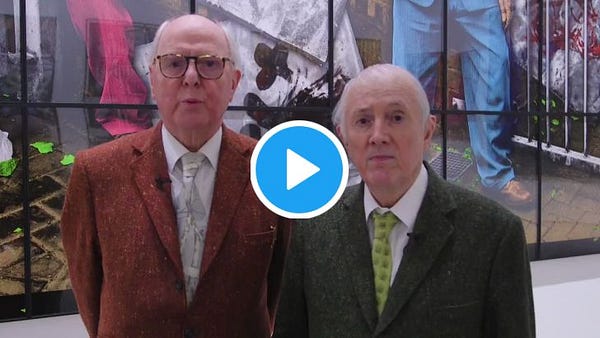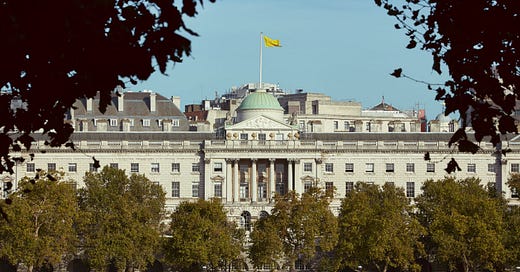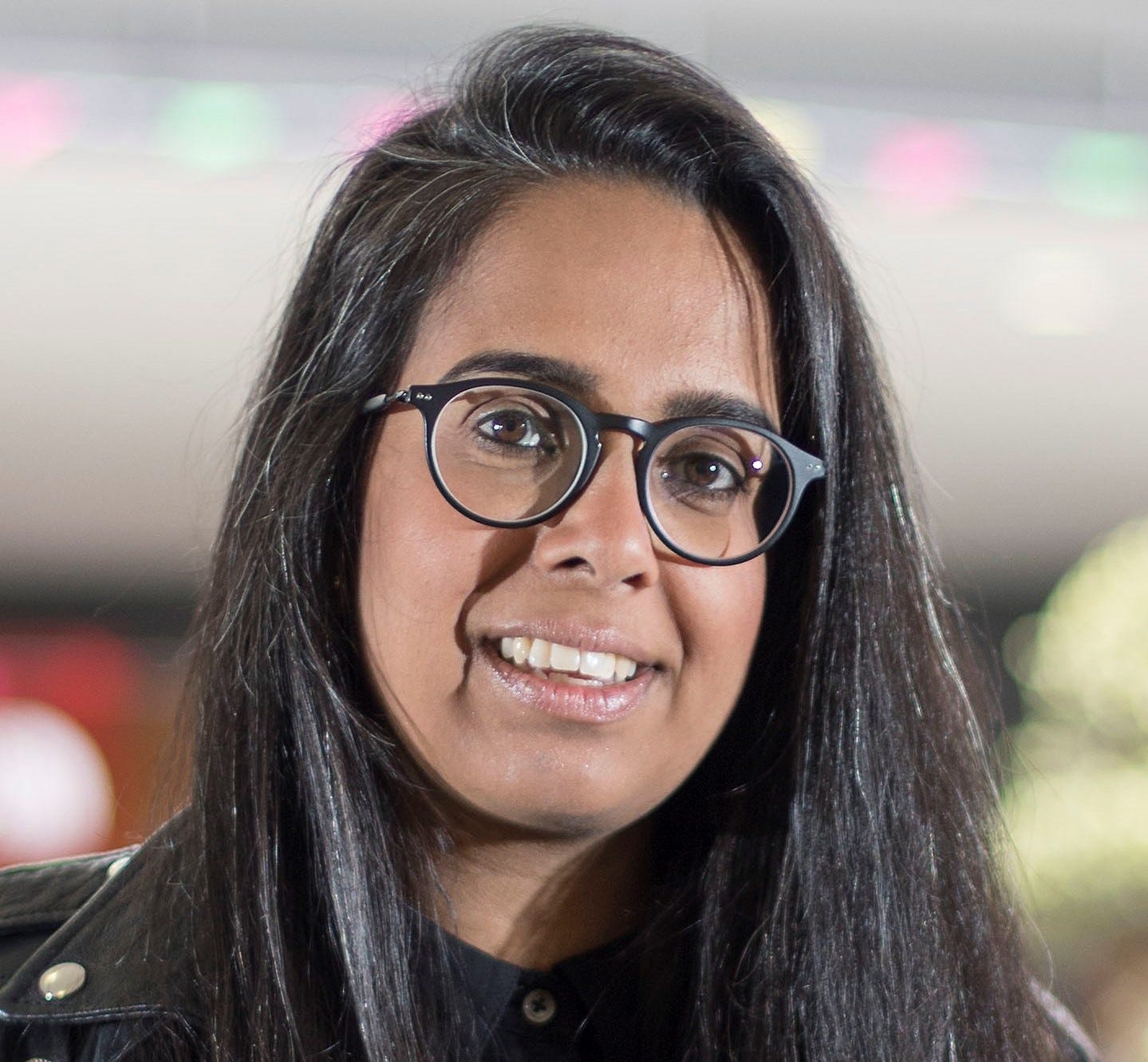Interview: Somerset House Head of Engagement
Dhikshana Turakhia Pering talks anti-racism and cultural careers
maxwell museums magazine - 2 March 2021
We’re kicking off with some very welcome breaking news this morning: the chancellor Rishi Sunak will announce in tomorrow’s Budget £408m of help for museums, theatres and galleries in England to reopen when Covid restrictions ease. £300 million will go to extend the Culture Recovery Fund, while museums will receive £90m to keep them going until they can reopen their doors on 17 May at the earliest. This cash won’t solve many of the financial problems museums face (more on that below) but this injection of extra support will let the sector sleep a bit more easy until they can reopen.
This is my magazine edition which means it’s interview time! Somerset House is a cultural hub like no other in the UK (and is well worth a visit to marvel at the architecture alone). They’ve been at the forefront of supporting young people get into creative jobs and have just relaunched their extensive careers programme, so I’ve chatted to the leader of the project to find out more. It’s a must-read interview for anyone starting their career in the arts, so do share it via the button below with anyone you know who might benefit.
All the content in this newsletter is provided to you for free. Why not buy me a digital coffee if you enjoyed it?
barometer
What’s heating up and cooling down in the world of museums this week.
going up ⬆️
Art in Spain | While much of Europe has been starved of IRL art for months due to the pandemic, art-lovers in Spain have had no such forced abstinence. Many of the country’s museums and galleries are open, and have been since the end of the harsh lockdown last summer. Not only that, but a vast new contemporary art gallery in Cáceres was inaugurated last week by King Felipe VI, and mega-gallery Hauser & Wirth will open a new island offshoot in Menorca in July. I know where I’ll be heading on my first post-lockdown holiday.
going down ⬇️
Museum Jobs | The number of jobs in the UK museum sector continues to quite literally go down, as grim news on redundancies keeps coming. The latest museum to announce cuts was the V&A last week, but the Museums Association estimates over 4000 jobs have been lost across the whole country already. Unfortunately we can expect more to come.
what’s on
Here’s three brand new and upcoming exhibitions - both online and in-person - for you to get your art fix, wherever you are in the world.
Gilbert & George NEW NORMAL PICTURES at White Cube Online - the iconic duo unveil new works inspired by their home turf of East London during the pandemic. Opens online today
Alexander Calder: Modern from the Start at the Museum of Modern Art, New York - over 70 works are paired with archive material to chart the beloved artist’s relationship with New York’s MoMA. Opens 14 March
Botticelli to Van Gogh: Masterpieces from the National Gallery, London at the National Gallery of Australia, Sydney - the first ever international touring exhibition by London’s National Gallery sees 61 paintings, some of them the most famous in the world, make a hugely rare trip to Australia. Opens 5 March


interview
The pandemic might have closed the doors of our museums, galleries and heritage sites for much of the past year, but their work didn’t stop. Few will have been as busy as Dhikshana Turakhia Pering, Head of Engagement & Skills at London’s Somerset House, who spent most of 2020 forging ahead with revamping their extensive careers programme for 18-25 year olds. The new Upgrade Yourself has multiple strands for those who are looking for access routes into the cultural sector, including online events with experts in their field (a recent talk was led by fashion designer Henry Holland). There’s also an exciting new collaboration with Pinterest.
Dhikshana also took on the role as co-chair of the venue’s Anti-Racism Task Force, a group of 13 staff which was quickly set-up in the wake of the killing of George Floyd in Minneapolis last summer. I chatted to Dhikshana about these two major projects, and to see what the challenges of 2021 will be.
Somerset House has just relaunched its creative careers programme Upgrade Yourself. What's new?
The name for starters! Our creative careers programme has numerous strands that have all been developed at different stages over the past few years and as a consequence, they all had different names that didn’t totally connect. We’ve now brought them all under the same banner of Upgrade Yourself so it’s hopefully a little easier to follow and to decide what’s right for you. The name was actually the idea of one of our alumnus Hodan, who told us it shouldn’t only be reflective of the members on the programme who want to gain valuable professional experience, but also the organisations involved, improving their working practices by broadening their horizons and looking outside of their usual recruitment pool, fully realising the benefits this can bring. It’s also a Beyoncé track, so you know that’s cool too!
Another important difference is Upgrade Yourself: Online. Right at the start of the first lockdown, we were thinking like many others how we could take our programme online and one of our ideas was to have our Somerset House Studios artists talking through their careers and then open it up to a live Q&A. Following their success, we’ve incorporated this into our creative careers programme and shook up the format to have regular fortnightly events – one Inspiration talk and one Process workshop each month, both on one chosen corner of the creative sector. They’re hosted by young people themselves, so they can lead the conversations and get to the crux of what exactly they want to know, plus develop their presentation skills.
Why did you want to revamp it?
We conducted an independent evaluation of our creative careers programme, led by arts education researcher Dr Nicola Sim. This research made some valuable recommendations especially around language and capacities, which we are trying to address with the new Upgrade Yourself framework. We’ve actually released these findings publicly under Upgrade Yourself: Playbook, which we hope will be a helpful resource for industry peers also offering programmes supporting young people. The Playbook features the voices of those that delivered and supported the programme from Somerset House’s resident community - home to over 400 businesses from small start-ups to artist studios and world-leading cultural organisations – but most importantly the young people themselves. The journey to enact the changes is also charted by Somerset House’s Engagement & Skills team in a new one-off podcast Upgrade Yourself: Audio.
Are you worried about how the pandemic will affect the career prospects of young talent?
This generation of 18-30s are so entrepreneurial and already have so many strings to their bow - I definitely wasn’t as talented or as motivated as they are at their age! So I certainly have hope for what they will go on to achieve and how they will be able to adapt to new business needs in a post-pandemic world (especially in the digital realm), but undoubtedly the pandemic has created a colossal setback for them and I really worry about the impact on positive wellbeing. We all know how difficult it was before the pandemic to get even a foot through the door in the creative industries, now I fear some doors will just be shut completely. That’s why creative careers programmes are more important than ever and collectively as a sector we need to continue support for them. Certainly at Somerset House we fully intend to commence IRL work placements as soon as we possibly can and encourage as many of our resident community to sign up to the scheme too through the collective recruitment support and funding available. It is absolutely vital, however, that any creative careers programme has a very clear exit strategy from the start, and supports young people to get to the next step, otherwise you can often find yourself back at square one and the programme hasn’t served its purpose.
Tell me about the collaboration with Pinterest.
Pinterest has come on board to support the Young Producer strand of the programme, which specifically focuses on production placements, available to young creatives who are underrepresented in the cultural sector. The Young Producers collective was formed in October 2020 and they will co-create a number of projects with Somerset House and our community of creative organisations to be presented to the public. Pinterest is providing funding for the collective’s first project Decentralise, which has been in part inspired by our anti-racism work to review what we currently understand of Somerset House’s history. It launches this month and is an interactive digital platform exploring the history of Black British art at Somerset House. The Young Producers have been using Pinterest’s visual discovery platform to plot the journey from inspiration to action since their exploratory work began in November.
You also co-chair Somerset House’s Anti-Racism Task Force, and you’re pledging to update every six-months on progress. Your next update - on the priorities you outlined in September - is due next month. Are you on track?
We don’t ever view this work as a tick-box exercise – it is a long-term journey and we update every six months to take the public on this journey with us, and so we can continue to be held to account. But yes, we have been working in some form on everything we set out to do. We’ve progressed further in some areas than we’d anticipated, and not in others. And we’ve had other opportunities presented to us which we’ve been developing, which we didn’t actually say we were going to do back in September! We will always set out our goals but naturally these can evolve over the course of six months. However, I know the open call for a historian was of particular interest on our last update and we will definitely be revealing further details on this later in the month, amongst many other things.
Should Somerset House have acted sooner on anti-racism?
In short, yes. It’s fair to say before June last year we had made some strides in trying to combat racism in our own organisation, but it didn’t go far enough It wasn’t properly resourced and centred in our work, it took a long time with previous processes to implement change and we weren’t telling people what we were doing either, so it wasn’t open to scrutiny or suggestions. In essence, we had good intentions but we needed to show real action. Anti-racism really is at the top of the agenda for us now: it features in day-to-day meetings from Board level down, to dedicated space for all staff to engage in our Uncomfortable Conversations Club (our theme for March is Politics of Black Hair), but overall everyone at Somerset House is playing an integral part on our journey to be anti-racist. It’s a real testament as to what we can achieve when the whole organisation works together in this way. It should never have taken what it did to get us to this place, and no one Task Force can create the change needed. There’s still a long way to go, but I can definitely see a culture change at Somerset House. I know the entire organisation is now committed to putting in the work it takes for the long-term and I am proud to be a one small part of it.
What will be the challenges in your role in 2021?
Anyone leading an Engagement & Skills team will have to look at how to successfully combine their digital and IRL strategies. Before the pandemic, we were focussed on our IRL outreach work and obviously during the past 12 months, we have been working primarily on engagement digitally. After it all, we’ll have to work out how we can manage both at the same time effectively! Bringing about our Upgrade Yourself: Online programme has been brilliant in so many ways, as so many young people from across the UK and beyond have been able to benefit from it. Equally I’m very aware of digital disparities and the fact that not everyone has exactly the same access to digital technologies, so IRL activities for local young people are still so important. Accessibility is at the very heart of Engagement & Skills work.
Find out more about Upgrade Yourself here
and finally
We’re coming to the end of the financial year. For museums, it’s the end of a year when huge swathes (if not all) of their income completely disappeared. This blackhole in the books will be felt for years to come. Few articles I’ve read have stated this bleak reality quite as starkly (and urgently) as one which was published in the i last week. There are some startling new stats, many of them new to me. Here’s two eye-poppers: the Whitworth in Manchester has had to cut its exhibition budget by a mind-blowing 75%; and the Royal Academy in London saw 18,000 of its members desert them throughout the pandemic year, meaning a loss of £2.5m. Please do take a read, and help your favourite museum if you can.
All the content in this newsletter is provided to you for free. Why not buy me a digital coffee if you enjoyed it?





